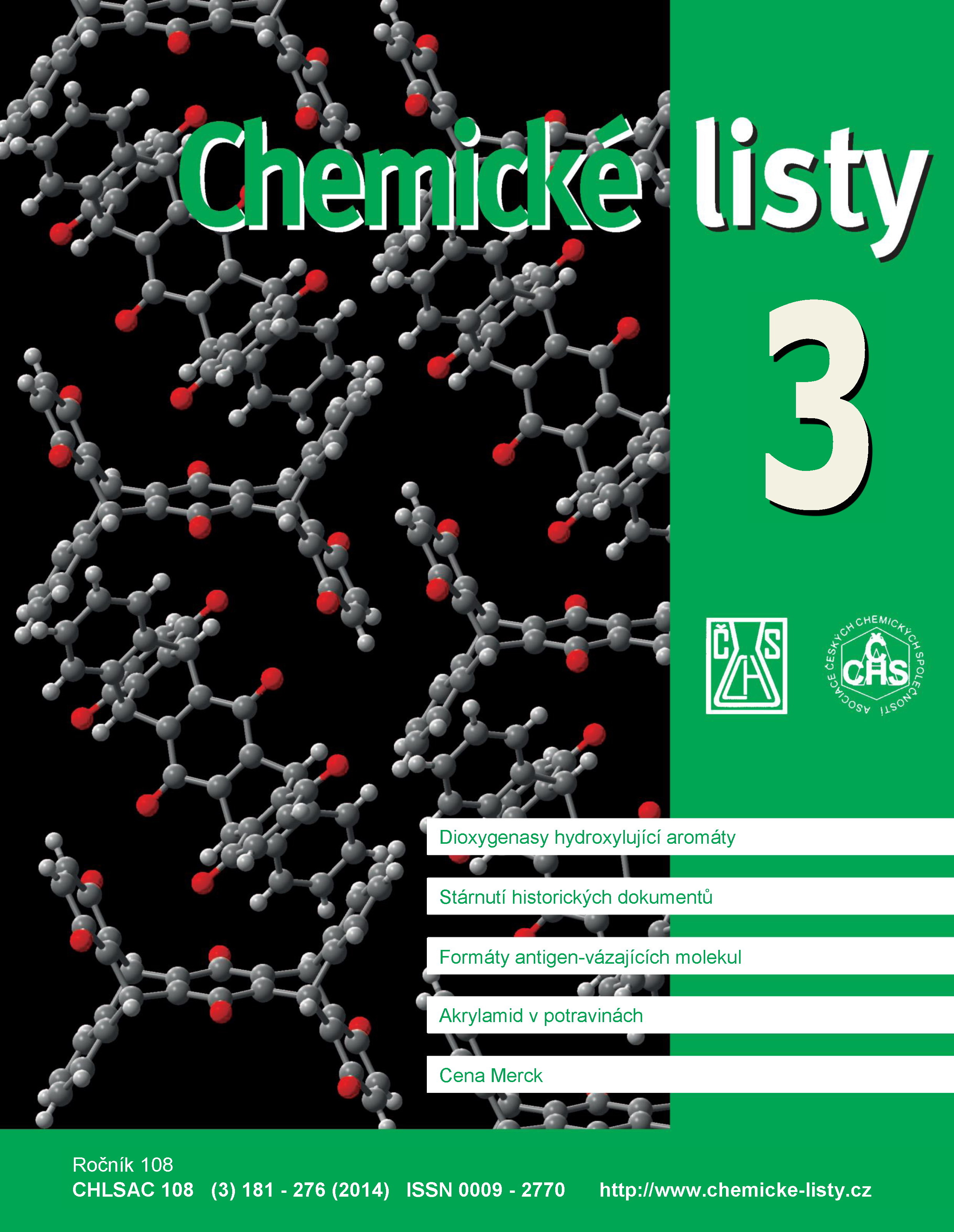Nové formáty antigen-vázajících molekul
Klíčová slova:
antigen-vázající molekuly, kompaktní proteinové jádro, hypervariabilní smyčka, afinitaAbstrakt
Hybridoma technology for synthesis of monoclonal antibodies was one of the major breakthroughs in biotechnology of the 20th century. Since then, it has been possible to produce the specific molecules with typical immunoglobulin domain structure in sufficient quantities and quality. So far the synthesis of these complex molecules is labour-intensive and highly expensive. Also the non-human origin of immunoglobulins limits their application in clinical practice. These circumstances led to the development of new formats of antigen-binding molecules. The main goal was to prepare simple and stable low-molecular-weight substances, which can be utilized not only in analytical chemistry, in separation science but also as diagnostics or therapeutics. Molecules with compact protein core (scaffold) with exposed hypervariable loops on the surface show a possible direction of efforts. Recently, very promising antigen-binding formats such as Affibody, DARPins, Affilins or Anticalins were tested not only for their diagnostic or therapeutic potentials, but also in analytical chemistry as highly specific ligands for isolation and purification of bioactive molecules, e.g. for affinity chromatography. The classification, origin and structure of new antigen-binding molecules with some examples of their applications are described.





